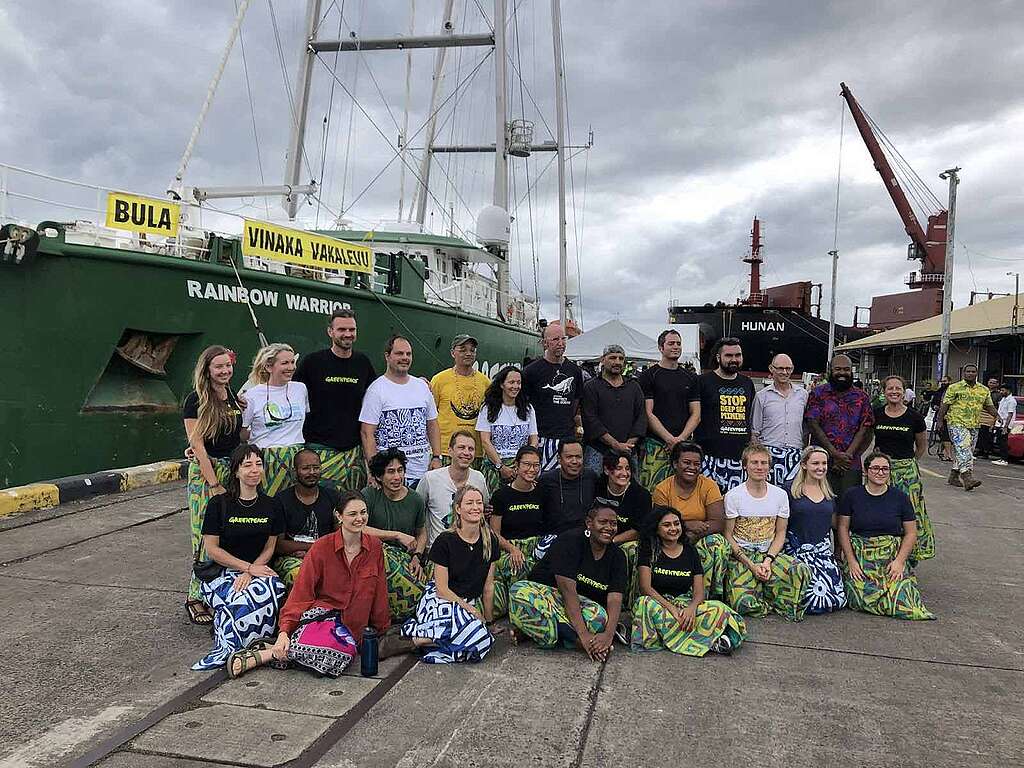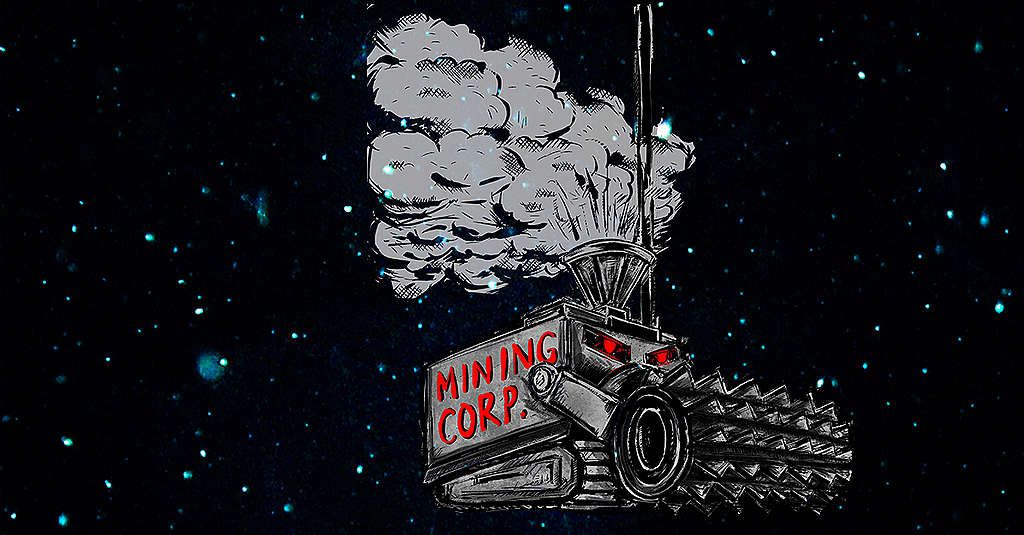Bula vinaka from Suva!
I’m currently with the Greenpeace ship the Rainbow Warrior that just arrived in Fiji to hear stories of Pacific voices calling for climate justice. A heartwarming welcoming ceremony called a sevusevu was held. During this ceremony we watched as Greenpeace was, in the words of the locals, “welcomed home”.
Throughout the sevusevu a sacred silence is observed. It is said that upon singing at the end of the ceremony to break the silence, all participants become one. We move forward from that moment as one people, united. This is so relevant to the campaign on climate justice and other issues that affect the Pacific region like deep sea mining, but also to activism in the Pacific as a whole. We must come together to achieve our dreams as a region. As the united Pacific.

I’m here with the majestic Rainbow Warrior and its crew to help draw attention to a new and real threat to the Pacific: deep sea mining. This neo-colonial, destructive industry poses significant threats to the ocean that we are so deeply connected to.
I’m in Fiji to work with local communities who are some of the people that will bear the brunt of ocean destruction should it go ahead. To hear their stories and take them to the world. It’s essential that Pacific peoples’ voices are heard.
Over the past three weeks, world leaders have been in Kingston, Jamaica discussing deep sea mining. Two years ago, The Metals Company (TMC) helped trigger a legal loophole under the United Nations Convention on the Law of the Sea or UNCLOS to begin the rush to mine the deep sea. This is an outdated piece of legislation written in the 80s that fails to consider the current state of the ocean and should never have been triggered.
The so-called ‘two year rule’ said that mining companies such as TMC could, through sponsor nations, inform the International Seabed Authority (ISA) that they intend to mine the deep sea within two years. The ISA would then need to have finalised regulations within that period of time.
Those two years just ended on the 9th of July, and so. This most recent meeting of the ISA could have been the one that signalled the beginning of deep sea mining. The industry was counting on this being the case.
But thanks to Pacific opposition, the work of organisations such as the Deep Sea Conservation Coalition, and Greenpeace, that didn’t happen. We are so proud to have been able to support Pacific activists to be in that room. To speak in the room with decision-makers, ensuring that their voices calling for precaution were heard.
For too long, the International Seabed Authority has operated behind closed doors, in the shadows. They operate in a way that is inaccessible to those who have the most to lose. The Pacific way of life is threatened by this destructive industry. Major industries such as fisheries and tourism are directly threatened by the potential impact of deep sea mining. We must stand united against this industry and stop it before it can ever begin.
Please take a moment to take action. Your support is essential. Here are a couple of really easy things that you can do right now:
And sign the petition to stop deep sea mining:

It’s time for New Zealand to take a stand. Join our call on the New Zealand government to back a global moratorium on seabed mining.
